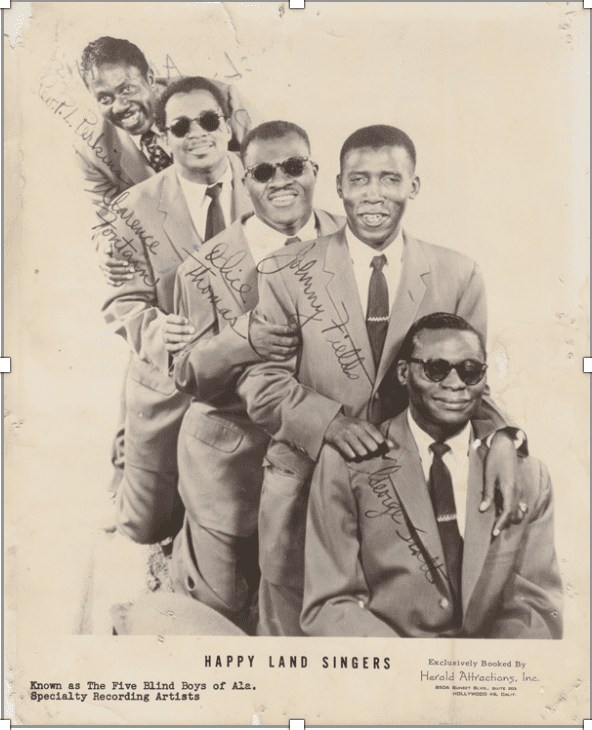Like many of the first genres of African American music in the western world, the quartet was born out of European and African American aesthetics and musical values. The quartet, an ensemble of four voices or four instruments, originated in the mid-1800s out of the collegiate singing movement. Early African American sacred a cappella groups were originally known as jubilee quartets due to their repertoire and performance style. These groups were usually made up of men and possessed a unique singing style that eventually evolved as a sub-genre of gospel.
In the African-American community, the quartet consisted of a minimum of four voices but could consist up to six voices singing four-part harmony arrangements acapella or with limited instrumentation. In this community, the quartet size is not limited as in the European tradition but by the number of harmony parts.
Traditionally, quartet singing started in the Black church, carrying over into other Black genres, including Jazz and Soul music. Today, quartet singing continues to have a strong pulse within African American music and continues to provide the basic framework for Black musical religious ensembles today.
When studying the context of African-American quartets, this performance genre can be subdivided into three main periods: The Jubilee Period (1880-1929) during which many quartets were formed at newly founded black colleges and universities in the South and in other communities to help raise funding and for entertainment; The Transitional Period (1930-1945) during which quartets began to include folk, spiritual, and secular folk songs, in addition to gospel, expanding their repertoire to compete in contests and appeal to various audiences including, various. cafes, theaters, nightclubs, and predominately White groups; and The Gospel Period (1946-1969) during which there was a clear separation of gospel and secular music. During the Gospel Period, quartets were backed by more instruments, including the organ, bass and electric guitars. Lead singers began to expand passages and incorporate more falsetto, vibrato, and shout vocals, and sometimes even personal testimonies to “work the audience, inducing emotions, crying and shouting from the audience. However, stylistic overlap can be found within each of these periods, as existing styles can continue as new ones are developed amid socio-cultural, economic, political, and educational climate changes. Today, the quartet is still a strong sub-genre and thread in the gospel music genre. Though it has evolved, its style remains distinct from that of today’s gospel groups and choirs.

https://www.discogs.com/artist/289618-Five-Blind-Boys-Of-Alabama

